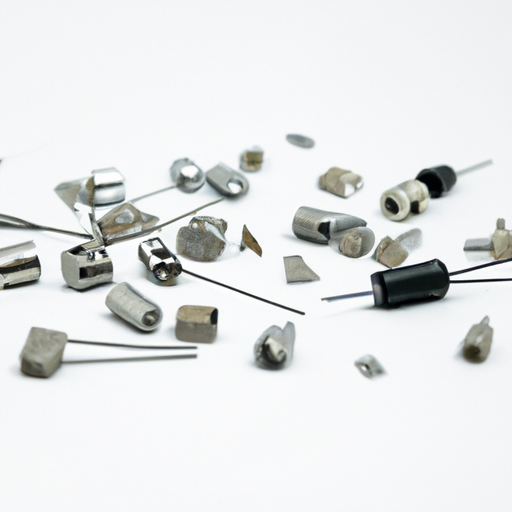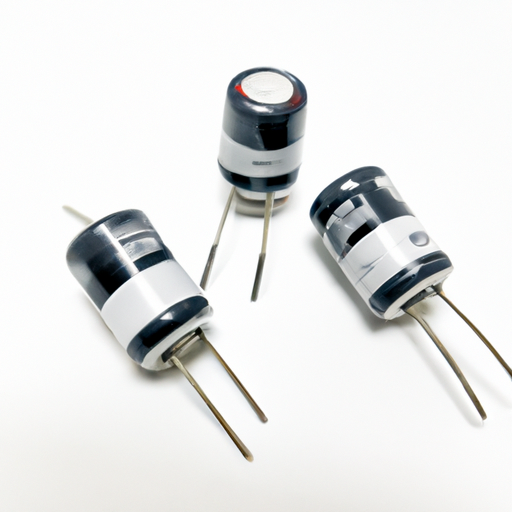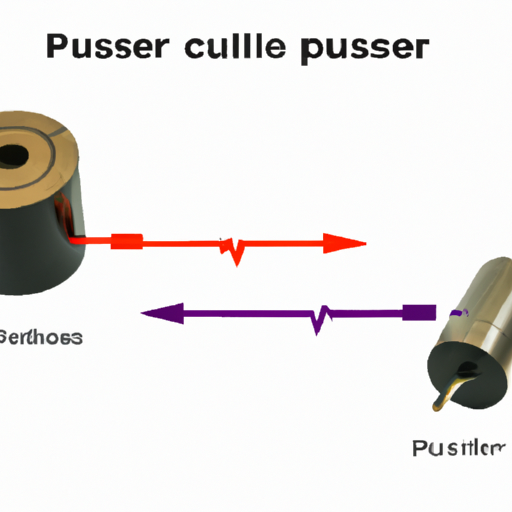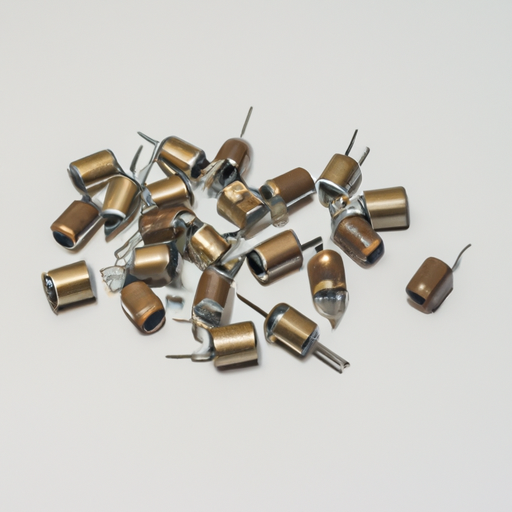What are the important product categories of metal resistors?
Important Product Categories of Metal Resistors
I. Introduction
A. Definition of Metal Resistors
Metal resistors are passive electronic components that limit the flow of electric current in a circuit. They are made from metallic materials that provide a specific resistance value, which is crucial for controlling voltage and current levels in various electronic applications. These resistors are essential for ensuring that circuits operate within their designated parameters, preventing damage to sensitive components.
B. Importance of Metal Resistors in Electronic Circuits
In the realm of electronics, metal resistors play a pivotal role. They are used in a wide array of applications, from consumer electronics to industrial machinery. Their ability to provide precise resistance values makes them indispensable in circuit design, where they help regulate current, divide voltages, and stabilize signals. The reliability and performance of metal resistors directly impact the overall functionality and efficiency of electronic devices.
C. Overview of the Article
This article will explore the important product categories of metal resistors, detailing their types, key characteristics, applications, and emerging trends in technology. By understanding these aspects, readers will gain insight into the critical role metal resistors play in modern electronics.
II. Types of Metal Resistors
A. Metal Film Resistors
1. Description and Construction
Metal film resistors are constructed by depositing a thin layer of metal onto a ceramic substrate. The resistance value is determined by the thickness and length of the metal film, which is then cut into a spiral or zigzag pattern to increase the effective length. This design allows for precise control over the resistance value.
2. Advantages and Applications
Metal film resistors are known for their high accuracy and stability. They typically have a tolerance of ±1% or better, making them suitable for applications requiring precise resistance values. Common applications include audio equipment, precision measurement devices, and high-frequency circuits.
B. Metal Oxide Resistors
1. Description and Construction
Metal oxide resistors are made from a mixture of metal oxides, which are sintered to form a ceramic body. This construction provides excellent thermal stability and allows the resistors to handle high temperatures and power levels.
2. Advantages and Applications
These resistors are known for their robustness and reliability, with a tolerance of around ±5%. They are commonly used in power applications, such as power supplies, motor controls, and automotive electronics, where high power ratings and thermal stability are essential.
C. Wirewound Resistors
1. Description and Construction
Wirewound resistors are made by winding a metal wire, typically made of nickel-chromium or copper-nickel alloy, around a ceramic or fiberglass core. The resistance value is determined by the wire's length, diameter, and material.
2. Advantages and Applications
Wirewound resistors are capable of handling high power levels and have excellent stability and low noise characteristics. They are often used in applications such as power amplifiers, load testing, and high-current circuits.
D. Thin Film Resistors
1. Description and Construction
Thin film resistors are created by depositing a very thin layer of resistive material onto a substrate. The resistance value is controlled by the thickness and area of the film, allowing for precise manufacturing.
2. Advantages and Applications
These resistors offer high precision, low noise, and excellent temperature stability, with tolerances as low as ±0.1%. They are commonly used in high-performance applications, including instrumentation, telecommunications, and aerospace.
E. Thick Film Resistors
1. Description and Construction
Thick film resistors are made by printing a thick layer of resistive paste onto a substrate, which is then fired to create a solid resistor. This method allows for mass production and cost-effectiveness.
2. Advantages and Applications
Thick film resistors are versatile and can be produced in various resistance values and sizes. They are widely used in consumer electronics, automotive applications, and industrial equipment due to their affordability and reliability.
III. Key Characteristics of Metal Resistors
A. Tolerance
Tolerance refers to the allowable deviation from the specified resistance value. It is a critical characteristic that determines the precision of a resistor. Metal film and thin film resistors typically have lower tolerances, making them suitable for high-precision applications.
B. Temperature Coefficient
The temperature coefficient indicates how much a resistor's resistance changes with temperature. A low temperature coefficient is desirable for applications requiring stable performance across varying temperatures. Metal film and thin film resistors generally exhibit better temperature stability compared to other types.
C. Power Rating
Power rating indicates the maximum power a resistor can dissipate without overheating. It is essential for ensuring that resistors can handle the electrical load in a circuit. Wirewound and metal oxide resistors typically have higher power ratings, making them suitable for high-power applications.
D. Noise Characteristics
Noise in resistors can affect the performance of sensitive electronic circuits. Metal film and thin film resistors are known for their low noise characteristics, making them ideal for applications in audio and precision measurement.
E. Stability and Reliability
Stability and reliability are crucial for the long-term performance of resistors. Metal oxide and wirewound resistors are known for their robustness and ability to maintain performance over time, even in harsh environments.
IV. Applications of Metal Resistors
A. Consumer Electronics
Metal resistors are widely used in consumer electronics, including televisions, smartphones, and audio equipment. Their ability to provide precise resistance values ensures optimal performance and reliability in these devices.
B. Industrial Equipment
In industrial settings, metal resistors are used in machinery, control systems, and automation equipment. Their durability and high power ratings make them suitable for demanding applications.
C. Automotive Applications
Metal resistors play a vital role in automotive electronics, including engine control units, sensors, and power management systems. Their reliability and thermal stability are essential for the performance of modern vehicles.
D. Telecommunications
In telecommunications, metal resistors are used in signal processing, transmission equipment, and network devices. Their low noise characteristics and precision are critical for maintaining signal integrity.
E. Medical Devices
Metal resistors are also found in medical devices, such as diagnostic equipment and monitoring systems. Their accuracy and reliability are crucial for ensuring patient safety and effective treatment.
V. Emerging Trends in Metal Resistor Technology
A. Miniaturization
As electronic devices become smaller and more compact, the demand for miniaturized components, including metal resistors, is increasing. Manufacturers are developing smaller resistors without compromising performance, enabling the creation of more compact devices.
B. Enhanced Thermal Management
With the growing power demands of electronic devices, effective thermal management is becoming increasingly important. New materials and designs are being explored to improve the thermal performance of metal resistors, ensuring they can handle higher power levels without overheating.
C. Smart Resistors
The integration of smart technology into resistors is an emerging trend. Smart resistors can provide real-time data on their performance, allowing for better monitoring and control in electronic circuits.
D. Environmental Considerations
As sustainability becomes a priority in electronics manufacturing, there is a growing focus on developing environmentally friendly resistors. This includes using recyclable materials and reducing waste in the production process.
VI. Conclusion
A. Summary of Key Points
Metal resistors are essential components in electronic circuits, with various types, each offering unique advantages and applications. Understanding their characteristics, applications, and emerging trends is crucial for anyone involved in electronics design and manufacturing.
B. Future Outlook for Metal Resistors
The future of metal resistors looks promising, with ongoing advancements in technology and materials. As the demand for smaller, more efficient electronic devices continues to grow, metal resistors will play a vital role in meeting these challenges.
C. Final Thoughts on the Importance of Metal Resistors in Modern Electronics
In conclusion, metal resistors are fundamental to the functionality and reliability of modern electronic devices. Their diverse applications and continuous evolution make them a critical area of focus for engineers and manufacturers alike. As technology advances, the importance of metal resistors will only continue to grow, ensuring their place in the future of electronics.
VII. References
A. Academic Journals
- Journal of Electronic Materials
- IEEE Transactions on Components, Packaging and Manufacturing Technology
B. Industry Reports
- Market Research Reports on Resistor Technologies
- Industry Analysis of Electronic Components
C. Manufacturer Specifications
- Datasheets from leading resistor manufacturers
- Technical specifications from component suppliers
D. Online Resources
- Electronics tutorials and educational websites
- Manufacturer websites and product catalogs
This comprehensive overview of metal resistors highlights their significance in electronic circuits, providing valuable insights for professionals and enthusiasts in the field.






